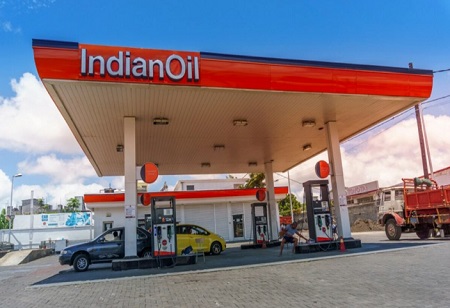The past year has seen the EV eco-system in the country grow substantially, particularly driven by the Central government's push towards vehicle electrification, the revised and enhanced FAME II policy subsidy and several States rolling out EV-friendly policies both for consumers and industry.
EV sales, particularly two- and three-wheelers, are on the upswing while demand for electric passenger vehicles is also increasing. As a result, companies across the automotive spectrum are recognising the market shift and taking measure to both stay future-ready and also relevant in a future that is driving towards greener motoring.
To promote greener energy solutions in line with its sustainable energy commitments, India’s No. 1 OMC, Indian Oil will install EV charging facilities at 10,000 fuel stations over the next three years. The proposed EV charging network will enable an uninterrupted driving experience for EV users and boost the country's EV manufacturing ecosystem. At present, IOCL has 27,500 fuel stations and 448 EV charging stations and 30 battery swapping stations across the country.
Elaborating on its plans, Indian Oil chairman S M Vaidya stated, "EVs are now a reality, and Indian Oil is geared up to tide over challenges and leverage opportunities in this area. Our bouquet of services will now include alternative energy
offerings, including EV charging at our fuel stations. We will focus on nine cities in the first phase, including Mumbai, Delhi, Bangalore, Hyderabad, Ahmedabad, Chennai, Kolkata, Surat and Pune. We will expand the network of charging stations in a phased manner to the state Capitals, smart cities and major highways and expressways connecting these cities. I am confident that this small step by IndianOil will be a giant leap for the EV ecosystem in India.”
Indian Oil has teamed up with Tata Power, REIL, PGCIL, NTPC, Fortum, Hyundai, Tech Mahindra, BHEL and Ola for setting up EV chargers at its fuel stations. Initially, a mix of chargers suited for two- and three-wheelers will be provided, which will be further upgraded as per requirement and market conditions. It has also collaborated with Sun Mobility to strengthen its foray into green energy for battery swapping stations.
In the meantime, BPCL has chalked out a plan to set up charging stations at around 7,000 fuel stations across India over the next few years. It currently has a distribution network involving over 19,000 retail outlets (fuel stations). The OMC says the EV charging infrastructure will provide it a new business opportunity as well as a hedge against the risk of displacement of auto fuels. The gradual consumer shift from IC engine vehicles to EVs is also making OMCs think differently.
Firms that stand to benefit from this shift to EVs are the ones with a strong distribution network. BPCL, the second largest OMC, is a formidable player with nationwide network of fuel stations and distributors that can help in offering the EV charging facility in a short span of time compared to companies that are yet to build the physical infrastructure of retail outlets.
“Over the next few years, we are aiming at reaching the count of 7,000 stations to support the growing EV industry and these stations would be known as ‘Energy Stations’,” said Arun Kumar Singh, Chairman and Managing Director, Bharat Petroleum.
He added, “EV charging infrastructure is one of the five focused segments that BPCL is working on along with petchem, gas, consumer retailing, renewables and biofuels that will serve the energy needs of the nation.”
